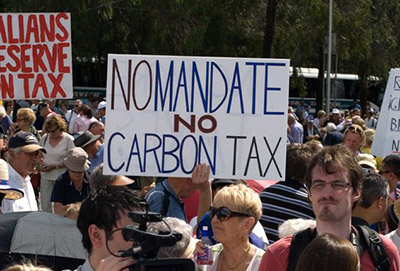Carbon tax reduces emissions by just 0.1%
8th December 2013
AUSTRALIA: The carbon tax introduced in Australia in July 2012, which led to dramatic increases in refrigerant prices, has reduced greenhouse gas emissions by less than 0.1%, a new report will reveal this week.
According to a report in this weekend’s Daily Telegraph the carbon tax coincided with a reduction of greenhouse gases of around 300,000 tonnes in the first full financial year of operation.
The new figures to be revealed this week by Australia’s National Greenhouse Gas Inventory, are said to show that in the financial year before the carbon tax was introduced Australia produced 546,200,000 tonnes of emissions. After the carbon tax was introduced, the emissions dropped to just 545,900,000 tonnes. These figures do not include fuels and refrigerants.
The new Liberal government under Tony Abbott is pledged to repeal the controversial tax which has caused manufacturing costs to spiral.
Refrigeration hard hit
Although only contributing around 1% to total carbon emissions, the refrigerant industry and end users have been particularly hard hit. With the cost applied to imports based upon a refrigerant’s global warming potential some of the higher GWP gases have seen huge increases, according to supplier group, Refrigerants Australia.
At a carbon price of AUS$24.15, importers pay an additional AUS$31.40/kg for R134a – an increase of four to six times over import costs. Due to its high GWP of 3800, R404A attracts an additional AUS$93.10/kg. Prior to the tax, refrigerants cost from a few dollars per kilo up to around AUS$20.00/kg for the more exotic refrigerants.
Stay informed: subscribe to the Cooling Post newsletter







